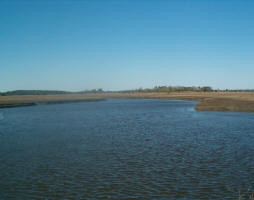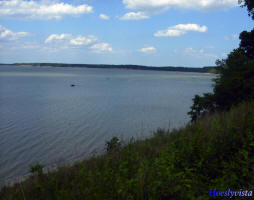 EU projects join forces to enhance public private partnerships in water infrastructure in Mediterranean countries
EU projects join forces to enhance public private partnerships in water infrastructure in Mediterranean countries
Twenty five high-level professionals from Jordan, Lebanon, Morocco, the Palestinian Territory, Tunisia and other Mediterranean countries took part in the training course on Mediterranean Public Private Partnership (PPP) schemes in Water Infrastructure organised by two EU-funded projects, the Horison 2020 initiative and the recently launched Sustainable Integrated Water management (SWIM) project.
(2) Enabling environment, risk management and allocation,
(3) Financial considerations and modeling, and
(4) Case studies.
H2020 workshop trains environment professionals on ecosystem-based management in the Mediterranean
Sixty-five participants from Algeria, Egypt, Israel, Jordan, Lebanon, Morocco, the occupied Palestinian territory, Syria, Tunisia and other Mediterranean countries gathered in Athens last December to take part in a two-day regional training course on “Ecosystem-based management in the Mediterranean”, organised by the EU funded Horizon 2020 Capacity Building/Mediterranean Environment Programme.
A press release said the objective of the workshop was to improve the understanding of ecosystem-based management concepts and tools, including scientific, economic, social and legal aspects, with the aim to improve the countries’ involvement in the development and implementation of relevant approaches. The workshop targeted professionals from ministries, departments, institutions and NGOs of the partner countries, involved in the management of human activities and their impacts on the marine and coastal environment. Dr. Gil Zeidner of the Marine and Coastal Division at the Ministry of Environmental Protection in Israel stressed the importance of getting in-depth knowledge from professionals in the field: “My country is facing tremendous expansion in infrastructure, including offshore oil and gas drilling, new desalination plants, expansion of ports, etc. It is therefore important that all those involved in the process grasp the concept, as well as the application of the ecosystem approach. The simulation exercise was really helpful towards this direction.” To foster an engaging learning experience and achieve the best possible results, the workshop included presentations, lectures, group simulation exercises and moderated discussion. On the methodology of the workshop, Mr. Imad Atrash of the Palestine Wildlife Society noted: “The involvement of all participants in working-groups allows the dissemination of information and sharing of experiences. Examining case studies gives a wider perspective and I will apply this method in sharing everything I learned, with my colleagues back home.” The Horizon 2020 initiative aims to improve the quality of life of more than 420 million citizens living in the 25 countries bordering the Mediterranean Sea. It is an umbrella programme drawing together all the policies, strategies and action plans for enhancing environmental protection. Horizon 2020 has mechanisms in capacity-building, research, monitoring and review that place the initiative in an excellent position to address the challenges it faces and ensure the efficient and effective use of the available resources. The inclusion of the Horizon 2020 Initiative as one of the six components of the Union for the Mediterranean (UfM) adds to the political impetus to address major environmental challenges.
| Contact information | n/a |
|---|---|
| News type | Inbrief |
| File link |
http://www.h2020.net/en/news-and-events/news/64-training-on-mediterranean-public-private-partnership-schemes-in-water-infrastructure.html |
| Source of information | ENPI Info Centre |
| Keyword(s) | water infrastructure, PPP, H2020, SWIM, UfM, water scarcity, climate change |
| Subject(s) | AGRICULTURE , DRINKING WATER , DRINKING WATER AND SANITATION : COMMON PROCESSES OF PURIFICATION AND TREATMENT , HYDRAULICS - HYDROLOGY , INFRASTRUCTURES , NATURAL MEDIUM , POLICY-WATER POLICY AND WATER MANAGEMENT , PREVENTION AND NUISANCES POLLUTION , RISKS AND CLIMATOLOGY , WATER DEMAND |
| Relation | http://www.semide.net/initiatives/horizon2020 |
| Geographical coverage | Jordan,Lebanon,Morocco,Palestine,Tunisia, |
| News date | 12/01/2012 |
| Working language(s) | ENGLISH |
 you are not logged in
you are not logged in





